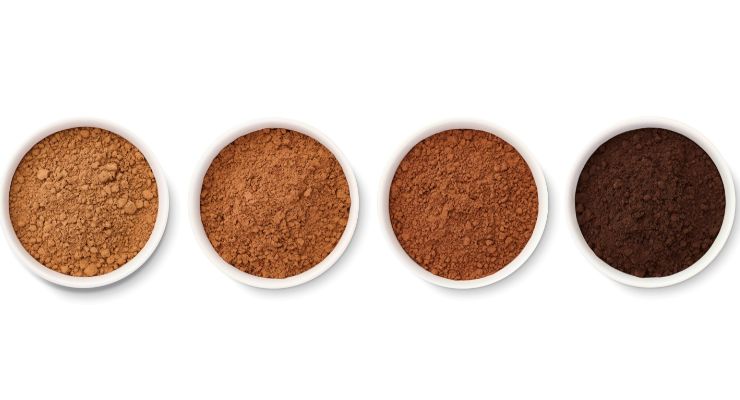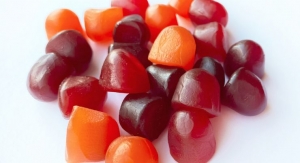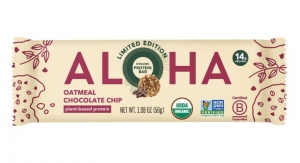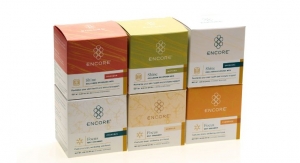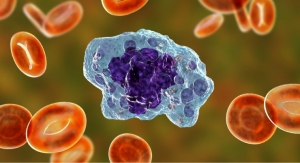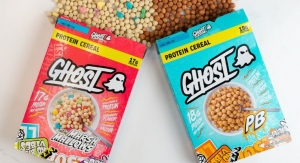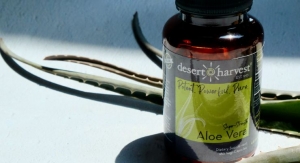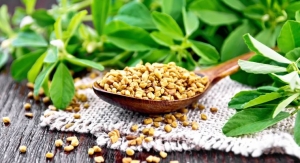03.26.24
At Natural Products Expo West, Cargill showcased recent clinical study findings demonstrating that stevia had no adverse effects on the human gut microbiome. The company also featured several of its new functional food ingredients, including PalmAgility 600 series compound coating fats, Gerkens cocoa powders, and pink Himalayan salt ingredients.
Stevia Study
Stevia had no significant effect on the human gut microbiome, according to a new study funded by Cargill and published in the Journal of Nutrition.
High-intensity sweeteners are known to reach the gut, but research on their effects on the gut microbiome is limited, so Cargill supported the study to address this knowledge gap.
The double-blind, randomized study tracked the effects of four weeks of daily consumption of a beverage that contained a high dose of stevia, versus one sweetened with sucrose, in 59 healthy adults. Measurements of the participants’ microbiome composition took place at baseline, as well as at week four and week eight.
According to the authors, the stevia-sweetened beverage was well-tolerated by study participants, had no significant effects on the relative abundance of gut microflora, and had no significant effects on microbial production of short-chain fatty acids, which have beneficial biological functions.
This research follows dozens of previous studies affirming the safety and sugar reduction benefits of stevia sweeteners, including another Cargill-funded study that assessed how stevia affected appetite, energy intake, and blood glucose levels.
In this study, which involved 20 participants, both stevia-sweetened beverages and water had no impact on blood glucose levels, while beverages sweetened with sucrose, glucose, or maltodextrin raised blood glucose levels.
Compared to those who drank water, participants who consumed stevia-sweetened drinks reported reduced feelings of hunger compared to those who consumed water. Stevia drinkers also consumed, on average, 105 kcal less than water drinkers, or participants who were given daily beverages sweetened with caloric sweeteners.
Functional Ingredients
Cargill showcased some of the newest additions to its portfolio of food ingredients.
The company’s PalmAgility 600 series compound coating fats are a new line of patent-pending specialty fats designed for applications including fillings, drizzling, enrobing, and bottoming for bakery, snacks, and confectionary products. The fats have high heat stability, and can delay fat bloom development which extends product shelf life and results in a better visual appearance. The line will include five products, differentiated by the final texture or mouthfeel they impart, ranging from a hard bite to a softer mouthfeel experience. This line is suited for compound coatings applied to donuts, cookies, snack cakes, and snack/nutrition bars.
Gerkens, Cargill’s cocoa powders brand, has continued to innovate with the flavor nuances of cocoa powders. The company’s chocolate engineers have been working to improve pairings for plant-based dairy alternative bases. Gerkens Floret, for instance, is suitable for the roasted, milky profile of an almond-based drink, while Gerkens Russet pairs well with oat-based beverages. Gerkens’ Sweety range can also enable sugar reductions ranging from 15-30%, and are especially suitable for chocolate dairy beverages or similar chocolate-flavored drinks. With a low level of bitterness and balanced flavor profile, less sugar is needed in the final applicaiotn, enabling sugar reduction without additional sweeteners or artificial ingredients.
Cargill’s pink Himalayan sea salt was also featured. Mined from ancient salt deposits, this line of salt includes a broad range of crystal sizes, including Pink Himalayan Salt Extra Coarse Topping, which is ideal for use when a larger crystal size is needed, such as for confectionary.
Product Concepts
Cargill highlighted a number of its ingredients through prototypes, including an Italian butter cookie dipped in a chocolate flavored coating made with PalmAgility 600 series compound coating fat, and a hot cocoa mix crafted with Gerkens Sweety cocoa powder.
Other prototypes leaned into health and wellness trends, such as a cherry-lime flavored smoothie containing 22 grams of PURIS HiLo pea protein per serving, sweetened with Cargill’s EverSweet stevia, and topped with its Pink Himalayan salt for a premium finish.
Stevia Study
Stevia had no significant effect on the human gut microbiome, according to a new study funded by Cargill and published in the Journal of Nutrition.
High-intensity sweeteners are known to reach the gut, but research on their effects on the gut microbiome is limited, so Cargill supported the study to address this knowledge gap.
The double-blind, randomized study tracked the effects of four weeks of daily consumption of a beverage that contained a high dose of stevia, versus one sweetened with sucrose, in 59 healthy adults. Measurements of the participants’ microbiome composition took place at baseline, as well as at week four and week eight.
According to the authors, the stevia-sweetened beverage was well-tolerated by study participants, had no significant effects on the relative abundance of gut microflora, and had no significant effects on microbial production of short-chain fatty acids, which have beneficial biological functions.
This research follows dozens of previous studies affirming the safety and sugar reduction benefits of stevia sweeteners, including another Cargill-funded study that assessed how stevia affected appetite, energy intake, and blood glucose levels.
In this study, which involved 20 participants, both stevia-sweetened beverages and water had no impact on blood glucose levels, while beverages sweetened with sucrose, glucose, or maltodextrin raised blood glucose levels.
Compared to those who drank water, participants who consumed stevia-sweetened drinks reported reduced feelings of hunger compared to those who consumed water. Stevia drinkers also consumed, on average, 105 kcal less than water drinkers, or participants who were given daily beverages sweetened with caloric sweeteners.
Functional Ingredients
Cargill showcased some of the newest additions to its portfolio of food ingredients.
The company’s PalmAgility 600 series compound coating fats are a new line of patent-pending specialty fats designed for applications including fillings, drizzling, enrobing, and bottoming for bakery, snacks, and confectionary products. The fats have high heat stability, and can delay fat bloom development which extends product shelf life and results in a better visual appearance. The line will include five products, differentiated by the final texture or mouthfeel they impart, ranging from a hard bite to a softer mouthfeel experience. This line is suited for compound coatings applied to donuts, cookies, snack cakes, and snack/nutrition bars.
Gerkens, Cargill’s cocoa powders brand, has continued to innovate with the flavor nuances of cocoa powders. The company’s chocolate engineers have been working to improve pairings for plant-based dairy alternative bases. Gerkens Floret, for instance, is suitable for the roasted, milky profile of an almond-based drink, while Gerkens Russet pairs well with oat-based beverages. Gerkens’ Sweety range can also enable sugar reductions ranging from 15-30%, and are especially suitable for chocolate dairy beverages or similar chocolate-flavored drinks. With a low level of bitterness and balanced flavor profile, less sugar is needed in the final applicaiotn, enabling sugar reduction without additional sweeteners or artificial ingredients.
Cargill’s pink Himalayan sea salt was also featured. Mined from ancient salt deposits, this line of salt includes a broad range of crystal sizes, including Pink Himalayan Salt Extra Coarse Topping, which is ideal for use when a larger crystal size is needed, such as for confectionary.
Product Concepts
Cargill highlighted a number of its ingredients through prototypes, including an Italian butter cookie dipped in a chocolate flavored coating made with PalmAgility 600 series compound coating fat, and a hot cocoa mix crafted with Gerkens Sweety cocoa powder.
Other prototypes leaned into health and wellness trends, such as a cherry-lime flavored smoothie containing 22 grams of PURIS HiLo pea protein per serving, sweetened with Cargill’s EverSweet stevia, and topped with its Pink Himalayan salt for a premium finish.

